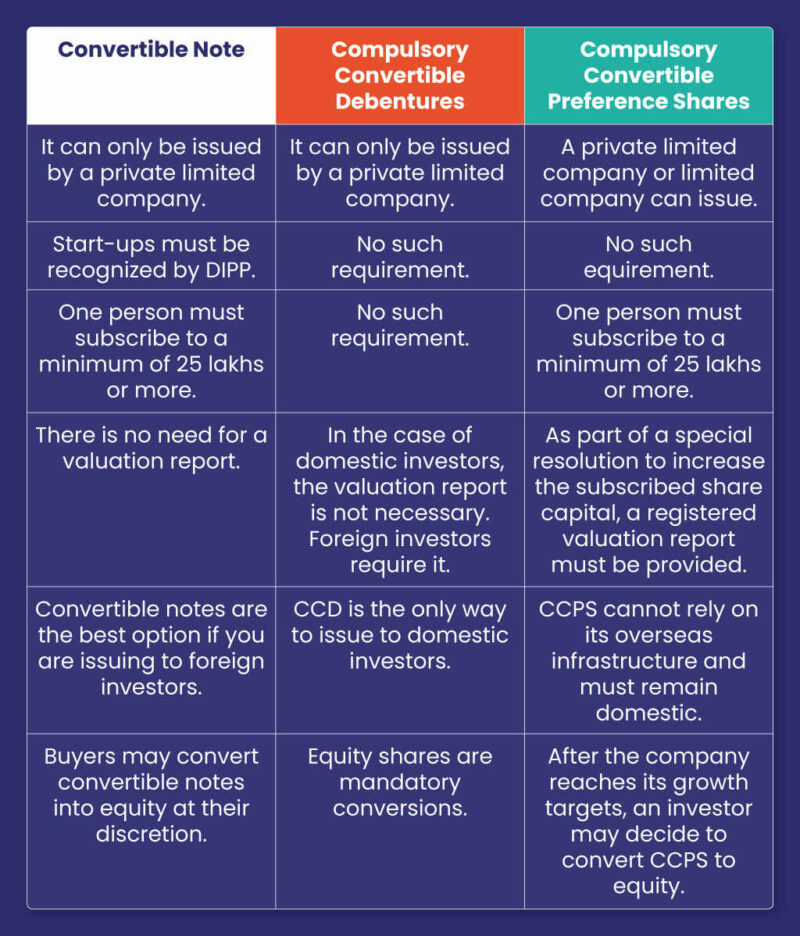
Convertible Notes: Everything You Need to Know Before Issuing
Seed financing today is on a tear. A dramatic swing in the pendulum has occurred in favour of founders, with an all-time high in convertible notes being issued for seed funding. The seed funding game has become increasingly competitive with venture capital funds, angel groups, incubators, and even friends and family competing to secure the next internet giant. So, let’s check the hype surrounding convertible notes.
What are Convertible Notes?
A convertible note is a form of investment instrument offered by startups. A convertible note (CN) works this way – in the first round of funding, an investor gives money to a startup, and the investor buys convertibles instead of taking shares in the company. CNs usually occur in the early stages of a startup when there is no establishment of the startup’s valuation.
Depending on the terms of the agreement, convertible shares can either be cashed out or converted to equity later. It benefits investors and issuers who are not obliged to value a business at the start when there is little to go on. Convertible notes can be an effective financing tool for later-stage rounds as well based on company valuations.
There can be a variety of convertible note templates that can be chosen depending on the founder’s and investor’s needs. But there are some standard terms in all those templates that can better define the convertible note.
The Terminology Involved in Convertible Notes
1. Discount Rate
Investing in early-stage companies is risky from an investor’s perspective. There is no guarantee that the startup will succeed. Therefore, discount rates are valuation discounts available only to early-stage investors who are willing to risk investing in convertible notes. Those investing in subsequent financing rounds cannot take advantage of this discount rate.
2. Valuation Cap
The investor’s notes cannot be converted into equity with the valuation cap until a specified price is reached. Convertible notes offer this unique feature. These instruments give investors the same ownership rights as stockholders and are helpful if a company dissolves suddenly.
For instance, if a company has a million shares and is valued at $1 million, each share is valued at $1. Assuming the value of the company at conversion is $1 million, an investor investing $100,000 would receive that many shares.
3. Interest Rate
A convertible note is ultimately a loan that will accrue interest. However, the investor will not receive cash interest returns; instead, the total investment (principal plus interest) will increase, increasing the number of shares issued upon conversion.
4. Maturity Date
When the convertible note is issued, the maturity date is set. The company has to repay the investors with a note converted to equity on this date.
Now that we have talked about a few terms involved in convertible notes, let’s see the process in a nutshell.
How Does a Convertible Note Work?
Transforming investments into equity is the basis for convertible note issuance. Its application varies depending on the variation of these three factors: rate of interest, valuation cap, and discount rate. Let us discuss some possible combinations of these parameters:
- Interest rate only – If you charge only an interest rate, the investment works like a traditional loan.
- Discount rate only – Since the company won’t know the true cost until the actual valuation, it also helps them.
- Interest and cap – This option uses a valuation cap rather than converting the note to its actual value. Besides, interest will add to the principal amount.
- Discount and cap – By combining a valuation cap with a discount rate, an investor can ultimately purchase shares for a higher price.
- The most expensive option – when combined with interest, discount, and cap.
Advantages of Convertible Notes

Before investing in a startup using notes, an investor needs to evaluate the risks. Consider the following advantages:
1. Risk-free and efficient
Technically, ownership of convertible notes can’t be transferred. Practically speaking, they are still loans. Investors and issuers can avoid tax implications and incorrect valuation risks—a perfect solution for startups who struggle with valuation at the outset.
2. Investing in pre-valuation
Startups usually seek external funding via convertible notes. The company can proceed to the next round of funding since it does not require a valuation. The company’s worth can be evaluated using advanced metrics at these stages. A sustained effort over a considerable period would have created fair value at this point.
3. Fixed income for noteholders
By combining interest rates with valuation caps, convertible notes are loans that guarantee a fixed income. While all of these will convert to equity, investors benefit from assurances on their invested amount. Moreover, the common shareholders benefit more from operating income since they invest at a higher price per share—both the issuer and the investor profit from convertible note terms.
4. Voting power
Investors with convertible notes are not entitled to vote on corporate affairs like ordinary shareholders. Thus, convertible notes are an ideal alternative financing option if the management is worried about losing voting control.
5. Simpler documentation
Legally and economically, convertible note documents are simpler when valuations are parked for a later stage funding process. Closing the funding round is also easier. Typically, equity rounds require documents such as the company charter or operating agreements.
If a company and investor match each other’s needs, convertible notes can be a great choice. Before they have the resources to get Series A funding, obtaining seed funding can be a valuable option for startups with a high-risk, high-reward model. However, both parties must benefit from the arrangement to have a detailed plan for every possibility.
Need some help managing your equity and issuing convertible notes? Contact trica equity today!
ESOP & CAP Table
Management simplified
Get started for free





